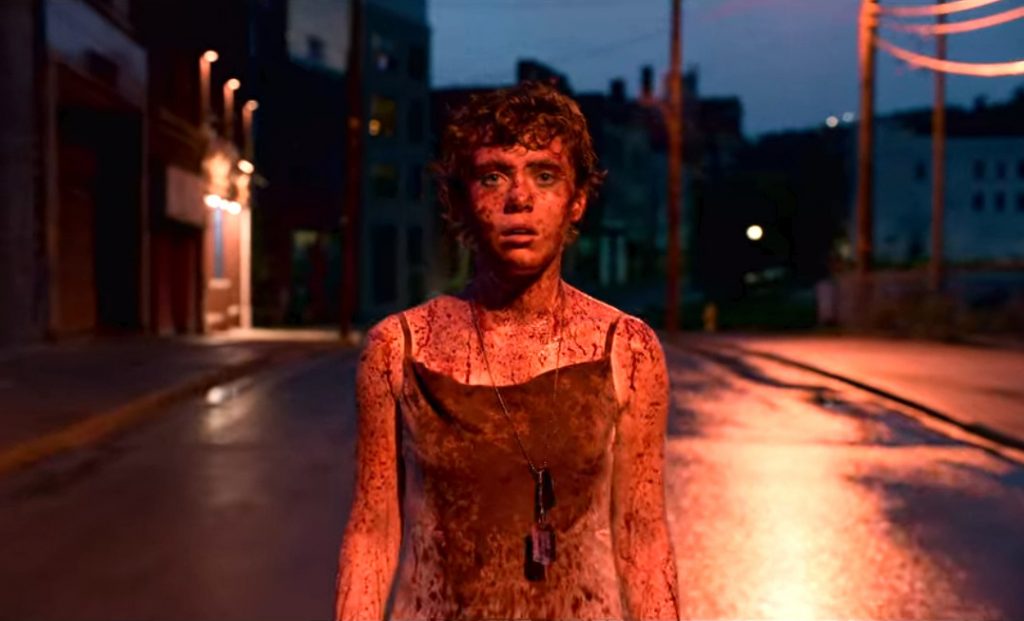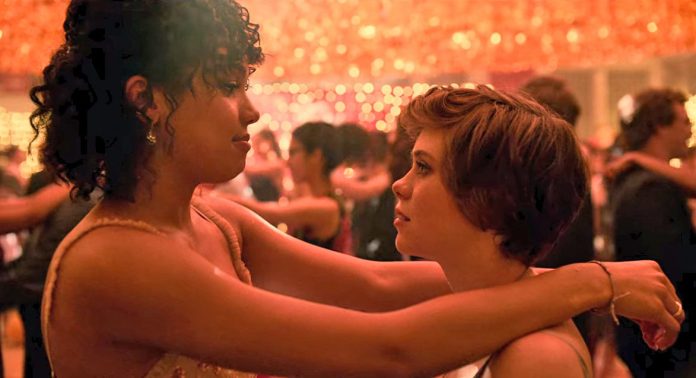The trailer for Netflix’s new series “I Am Not Okay With This” hints at another highschool dramedy with a sci-fi Gen-Z bent. Sydney (Sophia Lillis) is a shy girl in a baggy sweater whose best friend is far too cool for her. Enter Stanley (Wyatt Oleff), a manic-pixie-dream-boy in vintage Ts and pilled cardigan to charm her into a summer montage. Throw in some telekinesis and vague 80s and 90s nostalgia and Netflix has got another hit à la “Stranger Things.” Hit play on episode one, however, and …
“Dear Diary,” says Sydney in voiceover as she walks down a dark road, hollow-eyed and smeared in someone else’s blood, “go f–k yourself.” Yeah — not the show we thought it was. Oh, and did we mention it’s super queer?
From the gate, “I Am Not Okay With This” — with runtimes of only 20-30 minutes — plays like an homage to a John Hughes movie. But the plot hurdles over every expectation while shedding the misogyny of the Hughes era like a track jacket. “You have these prized female characters like Roald Dahl’s Matilda, Stephen King’s Carrie, the very beloved Eleven from ‘Stranger Things,’” writer, co-creator, and executive producer Christy Hall told Variety, “We knew we were entering into the sandbox of these treasured characters. We didn’t want to be afraid of leaning into these treasured, iconic, visceral images that we had all grown up with. Simultaneously we always wanted Sydney to feel unique in her own way — that she is her own version of this celebrated landscape.”

Before all the blood, Sydney is a “boring 17-year-old white girl” as per her diary that the school counselor makes her keep. It is particularly poignant to hear Sydney’s thoughts aloud — she talks about high school hierarchy, her absent overworked mother, and her father’s suicide with equal amounts sardonic wit, judgment and anguish. She talks about how much she likes Stanley but doesn’t feel that “way” about him in the same breath as she gushes about her best friend, Dina.
“She keeps me laughing and all I want to do is melt into the floor,” says Sydney, as they skip arm-in-arm, “She makes me realize I never had a best friend before.” This might strike a chord in all our gay hearts of the pain and confusion surrounding our first crush. Is a best friend someone we want to kiss?
There’s been a distinct lack of discussion on Sydney’s queerness and, frankly, it’s refreshing. Writing queerness is kind of a paradox: too much and it could flatten a story or character; too little and the importance of representation is downplayed. So, it may be a bit acrobatic to write about how refreshing this show’s lack of queerbaiting feels. But, there is no almost-kiss between Sydney and Dina in the trailer; Sydney’s infatuation with Dina seems so naive at first. In fact, the beauty of not knowing the show is queer pantomimes the very real experience of coming to know one’s queerness. Queerness is not a gimmick in “I Am Not Okay With This.”
Sydney’s latent psychokinesis is not merely for show either. It functions as a powerful metaphor for adolescence. Much like Stephen King’s “Carrie,” where puberty is an actual horror, Sydney’s powers emerge when she’s angry. When Dina takes up with Bradley, your typical jock dirtbag, Sydney becomes so enraged that she makes his nose gush blood with her mind. Throughout, Sydney’s story chafes against Bradley’s toxically masculine, hetereonormative tale of boy-gets-girl. It is Sydney’s rage that becomes externalized. It doesn’t make her rage right or moral, but it is not passive. Like most teenage emotions, Sydney’s is not a guided rage, but wild and undiscerning. In a series finale that is too shocking and hilarious to spoil, Sydney finally directs her unbridled power at the unsuspecting Bradley — at the patriarchy itself.
The last scene of this groundbreaking series teeters along the edge of the “kill your gays” trope, but in true form, has Sydney back away from the ledge. She is poised to accept and understand her powers, just as she is able to accept and understand herself.
